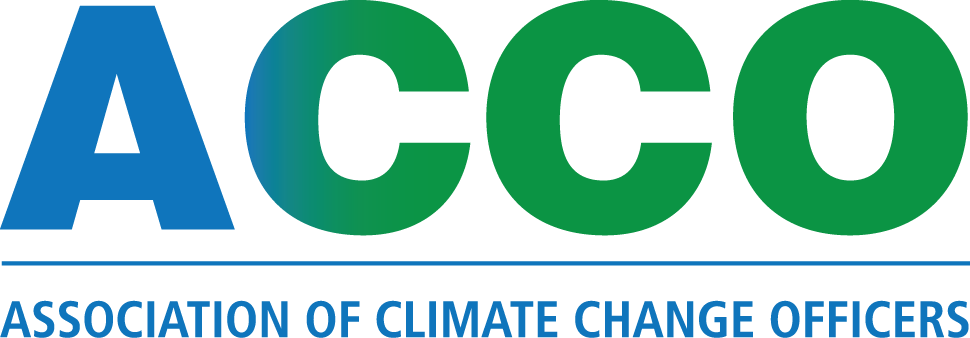Live Online CC-P® Prep Programs
ACCO’s live online training programs incorporate pragmatic and real-life scenarios in a collaborative learning environment with peer practitioners and resources to facilitate your professional development.
ACCO is offering a new program enabling participants to leverage live online training (supplemented by on-demand study resources) in a cohort learning environment with peers around the world to learn together and prepare for exams to earn the Certified Climate Change Professional® (CC-P®) credential.
Our live online training programs are led by instructors with recognized expertise and substantial experience in their respective subject areas. The curriculum, based upon the Core Competencies for Climate Change Officers & Professionals, is designed to prepare you to pass the CC-P® exams.
Tuition Structure
Full Program Rate for ACCO Members: $695
Note: Tuition includes testing and application fees.
Non-member registrants
must join ACCO:
$1 per month for 6 months
50$ DISCOUNT FOR LINKEDIN USERS:
Enter promo code ClimateSmart-2022
when prompted during registration!
Registration Includes:
Access to recordings of all classes in their entirety for viewing at your convenience
CC-P® Exam & Application bundle included
ACCO member benefits for 6 months
Fall 2022 Programs Announced!
Download the Fall 2022 brochure & schedule
Cohort XXI:
Start Date: Oct. 31, 2022
End Date: Nov. 2, 2022
Registration by: Oct. 28, 2022
All sessions start at 11am eastern
Cohort XXII:
Start Date: Nov. 8, 2022
End Date: Nov. 10, 2022
Registration by: Nov. 5, 2022
All sessions start at 6pm eastern



Course Modules Featured in this Series:
Prep for CC-P Exam #1
(Climate Science & Vulnerability Assessment)
Climate-101: Understanding Climate Science & the Latest Projections
Climate-103: The Basics of Sea Level Rise and Impacts on Coastal Assets & Infrastructure
Climate-201: Identifying Climate Hazards & Conducting Vulnerability Assessments
Prep for CC-P Exam #2
(GHG, Energy & Water Management)
GHG-101: Basics of GHG Accounting, Reporting & Disclosing GHG Emissions
GHG-201: Establishing GHG Reduction Goals & Management Structures
Prep for CC-P Exam #3
(Governance, Law & Policy)
Governance-101: Engaging Stakeholders & Establishing Early Strategies for Leading Organizational Change
Governance-102: The Legal/Policy Landscape of Climate Change & Related Implications
Governance-103: Ethics, Liability & Professionalism
Prep for CC-P Exam #4
(Risk Management & Economic Impact Assessment)
Economics-101: The Economics of Climate Change
Enterprise-201: Analyzing Climate Risks, Assessing Materiality & Disclosure
Program Features:
A blend of self-study resources and live online instruction courses
Case studies from practitioners and insights from fellow CC-P® professionals
A program structure designed to guide you through the certification process
The opportunity to expand your network by connecting with fellow attendees
Assignments that help reinforce program sessions
Sample test questions
Real-time Q&As with instructors and facilitated discussions among participants
Competencies You’ll Develop:
Recognizing situations where climate change outcomes affect the organization
Assessing impacts of specific situational outcomes
Enabling enterprise management of climate related initiatives
Assessing and quantifying climate risks and opportunities
Educating the organization on managing short-term and long-term uncertainty
Tailoring communication to different audiences
Leading organizational change initiatives
Developing and overseeing training programs
Attributing value to resource consumption
Extending organizational capabilities and maintaining good stewardship of actions taken through collaboration and partnership
Developing strategies for bundling, comparing and/or relying on existing management models


